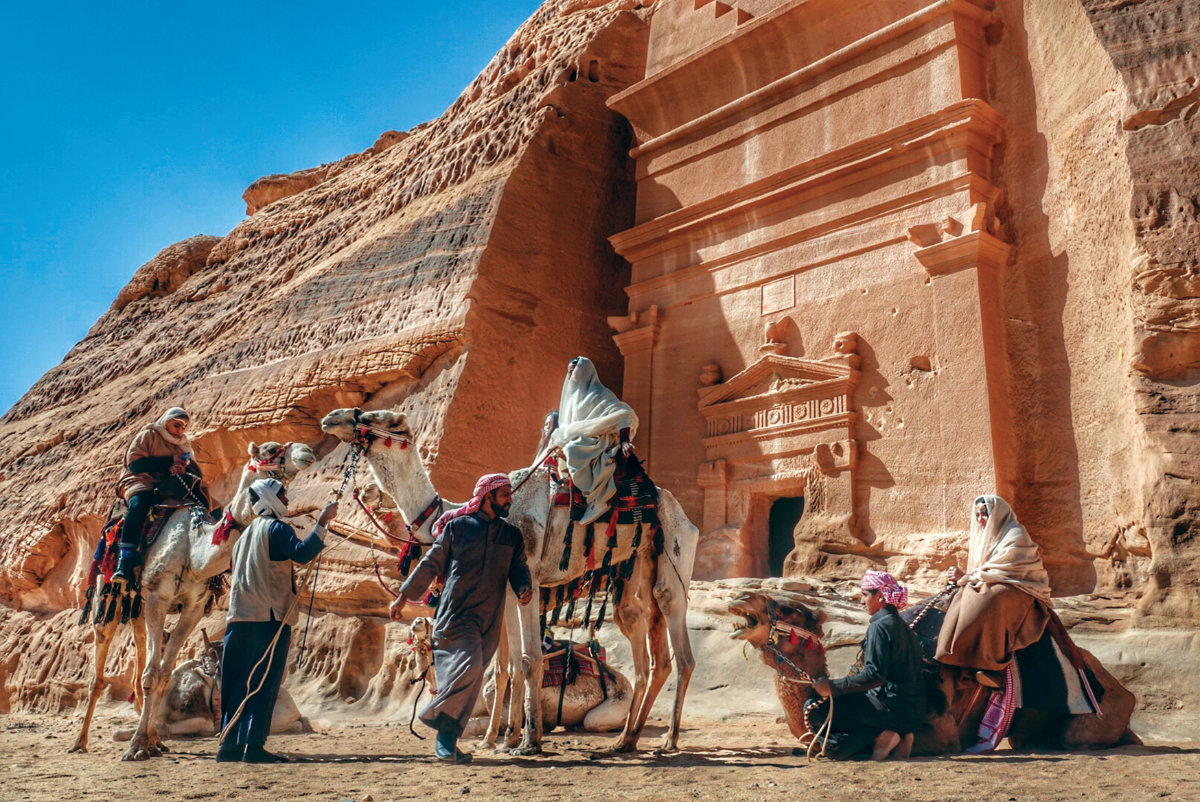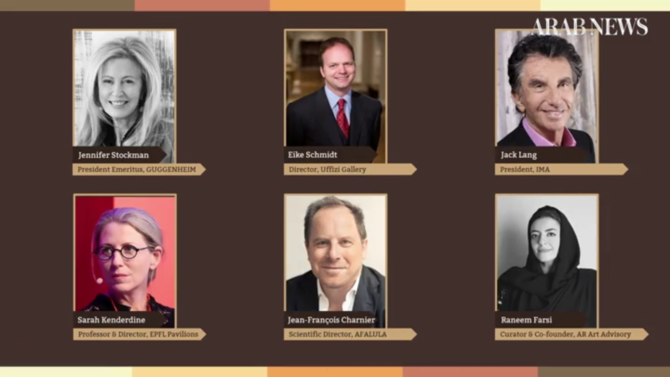LONDON: Saudi Arabia’s AlUla has the opportunity to become a crucial aspect of local and regional life and an area for all Saudis to take pride in, a panel discussing how the ancient valley can foster change heard.
“AlUla, in my opinion, has the opportunity to become one of the most important aspects of local and regional life, and also an area for all Saudis to feel so proud of,” President Emeritus of the Guggenheim Foundation Jennifer Stockman told the panel discussion, “At the crossroads: The living museum as a barometer of social change.”
“The change will dramatically happen when the world realizes that this is a brand-new discovery and fills in that white spot on the map. An interest in tourism will absolutely follow,” Stockman said.
AlUla is part of the Kingdom’s Vision 2030 plan to diversify its economy, increase tourism and raise its international profile.

AlUla, a governorate in Saudi Arabia's northwestwern region of Madinah, was once engaged in ncense trade with Mesopotamia, Egypt and beyond. (Supplied)
The city, in the Kingdom’s Madinah region, is home to 200,000 years of still largely unexplored human history, and plays a central role in its tourism strategy.
The panel discussed ways to ensure that the living museum fosters the changes that the Kingdom desires.
“This small city of AlUla was a door, a crossroad of cultural civilization around the world. We have to talk about that, we have to replace AlUla on the map of the world’s history,” Charnier said.
“The living museum is a wonderful gathering of exceptional assets. AlUla is already a living museum, an open-air living museum,” the scientific director said. “Currently more than 100 archaeologists are working on the site and it’s now the biggest archaeological cluster of the Middle East.”
Charnier detailed the scale of expertise involved in bringing alive the history of the cultural city. “There are not only archaeologists, there are anthropologists, biologists, archaeozoologists, archaeobotanists. We are here writing the narratives, writing the history of the place, and this narrative will also be the roots and the narrative of the assets and the museum.”
Scientific Director at the French Agency for AlUla Development (Afalula) Jean Francois Charnier was also keen for the world to learn about the “regional and international hub of influence” and place it back on the world’s map.
Director of EPFL Pavilions Professor Sarah Kenderdine highlighted the significance of the archaeological programs at AlUla and the Kingdoms Institute.
The Kingdoms Institute is dedicated to the study of the history and prehistory of the Arabian Peninsula and is committed to becoming a world-class scientific center for archaeological and conservation research.
“The archaeological programs at AlUla and the Kingdoms Institute are so important; already the archaeological surveys are vast and complex and they cover 22,000 square kilometers of archaeological materials, including the oldest dog in the world. Researchers have found this dog’s bones in the burial site and that’s one of the earliest monumental tombs identified in Arabia,” Kenderdine said.
“Therefore, AlUla plays this really pivotal role in the development of humankind across the Middle East and a global team is working at the Kingdoms Institute to give us the bridge that allows us to walk into deep time. The essence of historical consciousness is not just remembering what we see of their past, but also what we see in the present, and this link with the present is so vital at AlUla and it’s embodied in this rich vision for the living museum,” she said.





























